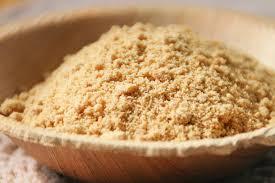In today's world of highly processed foods and artificial sweeteners, more people are turning back to natural and traditional ingredients. One such treasure from South Asian kitchens is Desi Shakkar. Often called unrefined or natural sugar, desi shakkar is a form of jaggery that is made from sugarcane juice or palm sap without any chemicals or preservatives. Rich in nutrients and full of flavor, it's a wonderful alternative to refined white sugar.
Let’s explore the top daily uses of desi shakkar, along with its health benefits and tips to get the best desi shakkar for your family.
Health Benefits of Desi Shakkar
Before we jump into how you can use it, it’s worth knowing why so many people are switching to organic desi shakkar:
-
Rich in minerals: Desi shakkar contains iron, magnesium, potassium, and calcium.
-
Supports digestion: It helps stimulate digestive enzymes and is often eaten after meals.
-
Boosts immunity: Especially helpful during winters due to its warming properties.
-
Detoxifies the liver: Acts as a natural cleanser for the body.
-
Provides sustained energy: Releases energy slowly, making it better than processed sugar.
Top Daily Uses of Desi Shakkar
1. Sweetening Beverages
A very common and traditional use of desi shakkar is as a sweetener in hot drinks. Unlike white sugar, it adds depth and a caramel-like flavor to your beverages.
Popular uses include:
-
Chai (Tea): Add a spoon of desi shakkar instead of sugar for a healthier version.
-
Milk: Children love warm milk with shakkar before bedtime.
-
Herbal Teas: It balances the bitterness of herbs and enhances the natural taste.
2. Cooking and Traditional Recipes
Desi shakkar is a key ingredient in many traditional South Asian recipes.
Common dishes include:
-
Halwa: Whether it’s suji, moong daal, or gajar ka halwa, shakkar is often preferred for its flavor.
-
Roti: Shakkar is mixed with desi ghee and wrapped in hot rotis to make a quick sweet treat.
-
Laddoos & Barfi: Especially in winters, energy-rich sweets made with nuts, ghee, and shakkar are a household favorite.
3. Post-Meal Digestive Aid
In many Punjabi and rural households, it is a common practice to chew a small piece of desi shakkar after meals. This simple habit helps in:
-
Activating digestive enzymes
-
Reducing acidity
-
Freshening the breath
Often, it is paired with fennel seeds for better digestion.
4. Desi Totkay (Home Remedies)
Desi shakkar has been used in home remedies for generations.
Some popular totkay include:
-
Shakkar with turmeric in warm milk for cough and cold relief.
-
With ghee and dry fruits to relieve menstrual cramps or boost energy during winters.
-
Mixed with ginger juice to treat sore throats.
These remedies have stood the test of time and are still used in many homes.
5. Natural Energy Booster
Thanks to its complex carbohydrates and mineral content, desi shakkar provides slow and steady energy.
Ideal for:
-
Farmers and laborers who need sustained physical energy.
-
Students and professionals looking for a mid-day energy lift.
-
Post-workout snack paired with nuts for recovery.
Desi Shakkar vs. Processed Sugar
| Feature | Desi Shakkar | White Sugar |
|---|---|---|
| Source | Natural sugarcane juice | Refined and bleached sugarcane or beet |
| Nutrients | Retains iron, calcium, minerals | Almost zero nutrients |
| Energy | Slow-release | Quick spike and crash |
| Processing | Minimal, chemical-free | Highly processed with chemicals |
Choosing organic desi shakkar over refined sugar is a small change that can make a big impact on your health.
How to Store and Use It Safely
Desi shakkar is quite easy to store, but to maintain freshness and prevent moisture buildup:
-
Keep it in an airtight container.
-
Store in a cool, dry place.
-
Always use a dry spoon when scooping.
-
If it clumps, gently break it with a spoon or pestle.
Recommended daily intake varies, but around 1 to 2 teaspoons per day is considered healthy for most people.
Where to Buy Pure Desi Shakkar
Finding authentic and chemical-free desi shakkar can be a challenge. Here’s where you can look:
-
Local markets: Especially in rural areas or small towns.
-
Organic stores: They often carry high-quality, certified options.
-
Online shops: Many brands now offer desi shakkar online—just make sure to check reviews and sourcing.
When shopping, look for:
-
A rich golden to brown color
-
Slightly coarse texture
-
No chemical smell or whiteness (which can indicate bleaching)
To ensure quality, always choose the best desi shakkar sourced from organic farms or local producers who follow traditional methods.
Conclusion
Desi shakkar is more than just a sweetener—it's a nutritious and versatile ingredient rooted in tradition and wellness. From your morning chai to your evening halwa, it can easily become a part of your daily routine. Whether you're looking for a natural energy boost or a way to sweeten your food without harmful effects, desi shakkar is an excellent choice.
Make the switch today and enjoy the sweet taste of tradition with every bite.



